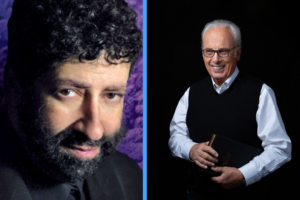If you are in crisis, please call 1-800-273-8255 or visit https://
Mental health is both an urgent, and largely neglected, issue in our culture. Seventy percent of teenagers say anxiety and depression, for example, are a “major problem” among people their age, according to Pew Research. But mental health is not just a concern for high school students.
One in four Americans of all ages has some sort of mental illness. And that number doesn’t diminish even among clergy, as 23 percent of pastors admit to experiencing mental health issues, according to LifeWay Research. Yet the same study shows that 60 percent of pastors do not agree that “medications should be used any time they can ease symptoms of acute mental illness.”
For many churches, mental illness still has a stigma attached to it. Christians who suffer from mental illness are often exhorted to overcome their mental illness with prayer and Bible reading, but are discouraged from taking medication or receiving professional counseling. Yet God can use all of the above to minister to those who struggle with mental illness.
Jesus came, not only to save us from sin, but also to make us whole.
Renowned Bible teacher and speaker Sheila Walsh told The Christian Post that her struggle with depression has been used by God to bring her closer to Him. “You feel as if you’ve been crushed. But in those times, that’s when you can experience the presence of the Lord.”
Walsh also talked about how the church must “wake up” to the reality of mental illness, and not stigmatize it.
“So often, when people are already hurting and struggling, we shame them; we make them feel as if there’s something wrong with them. We tell them there’s a lack of faith or trust in God; we tell them to pull themselves together. But it’s not a lack of faith; it’s a lack of chemicals in your brain to be able to function well.”
She continued, “I’ve had way too many conversations with spouses or parents whose child committed suicide because they were told within their church they don’t believe in medication.”
The stigma, however, has been changing over the past several years. Tim Sanford, clinical director at Focus on the Family, was optimistic when he told The Christian Post, “Fortunately, there has been positive movement in recent years as the church is beginning to respond to mental health issues and recognize their legitimacy.”
However, Sanford also warned that there is still much work to be done: “While many churches acknowledge mental illness as legitimate and are actively helping their parishioners with such issues, sadly, the belief (and subsequent responses) that anxiety or depression is sin or is a ‘lack of faith’ on the individual’s part is still too common in the body of Christ.”
As Christians, we rightly encourage one another with Bible verses like 2 Timothy 1:7 (NKJV): “For God has not given us a spirit of fear, but of power and of love and of a sound mind.” And while Scriptures like these should give us great courage, they should not be used to accuse of sin or doubt our brothers and sisters who struggle with mental illnesses. Nor should they be seen as a simplistic explanation or solution to an incredibly complex problem.
Mental illness affects the whole person. Often, Christians only focus on the spiritual implications of mental health. But while the spiritual side of mental health must be addressed, it is not the only thing that needs to be addressed. We must minister to the whole person—spirit, body and mind.
Our spirits are made healthier in community, prayer and the Word of God. Our bodies are made healthier when we get enough sleep, eat well, exercise and make other life changes that contribute to mental health. And our minds can be made healthier by, among other things, professional counseling and even medication when necessary.
Jesus came, not only to save us from sin, but also to make us whole. He said, “I came to give life—life that is full and good” (John 10:10b, ERV). The church must join Jesus’ mission, destigmatize mental illness and strive to bring holistic healing to those who desperately need it. {eoa}
Kenneth Reid is a writer for the LightWorkers team. LightWorkers‘ mission is to create engaging, uplifting and inspirational content that breaks through the clutter, building a community of sharing and igniting a movement in the real world that motivates people to celebrate and share the good all around them. Visit lightworkers.com.
See an error in this article?
To contact us or to submit an article























